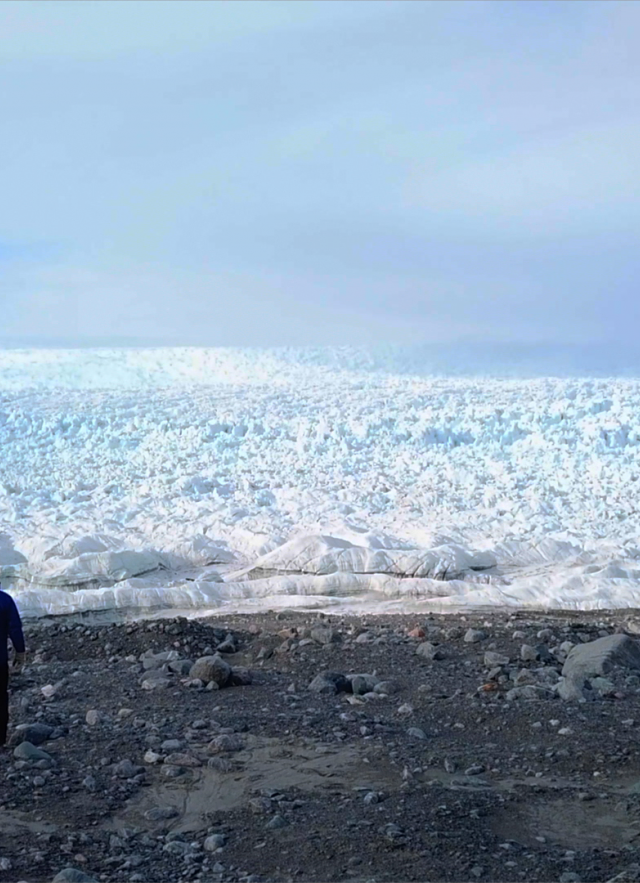Polar Extremes Community Screening

Date
There are no future occurrences of this event.
Location
Tickets
Polar Extremes, an upcoming NOVA special hosted by paleontologist and Sant Director of the Smithsonian Institution’s National Museum of Natural History Kirk Johnson, will take viewers on an epic adventure through time at the polar extremes of our planet. Following a trail of strange fossils found in all the wrong places—beech trees in Antarctica, hippo-like mammals in the Arctic—Johnson uncovers the bizarre history of the poles, from miles-high ice sheets to warm polar forests teeming with life. What caused such dramatic changes at the ends of the Earth?
And what can the past reveal about our planet’s climate today—and in the future? Join us for an exclusive sneak peek of clips from the film before the full-length version premieres in February on PBS. During the event, Julia Cort, Co-Executive Producer of NOVA, will moderate a Q&A discussion with Johnson, the filmmakers, and local paleontology experts.
SCHEDULE
2:30 pm - Doors open
3 - 5 pm - Screening and panel discussion
Visitors attending this event and arriving after 2 pm will receive free general admission to the museum.
Featured Speakers
Kirk Johnson, Sant Director of the Smithsonian Institution’s National Museum of Natural History; host of Polar Extremes
Caitlin Saks, NOVA Producer, co-host of Antarctic Extremes
Arlo Perez, NOVA Digital Associate Producer, co-host of Antarctic Extremes
Nate Smith, Associate Curator of the Dinosaur Institute, NHMLAC
This program is co-presented by The Natural History Museum of Los Angeles County, PBS SoCal, and NOVA. NOVA is produced by PBS for WGBH Boston.
National corporate funding for NOVA is provided by Draper. Major funding for NOVA is provided by the David H. Koch Fund for Science, the Corporation for Public Broadcasting, and PBS viewers. Additional funding is provided by the NOVA Science Trust. Major funding for Polar Extremes is provided by the National Science Foundation. Additional funding is provided by the Heising-Simons Foundation, The Kendeda Fund, the George D. Smith Fund, and the Richard Saltonstall Charitable Foundation.
This material is based upon work supported by the National Science Foundation under Grant No. 1713552. Any opinions, findings, and conclusions or recommendations expressed are those of the author(s) and do not necessarily reflect the views of the National Science Foundation.